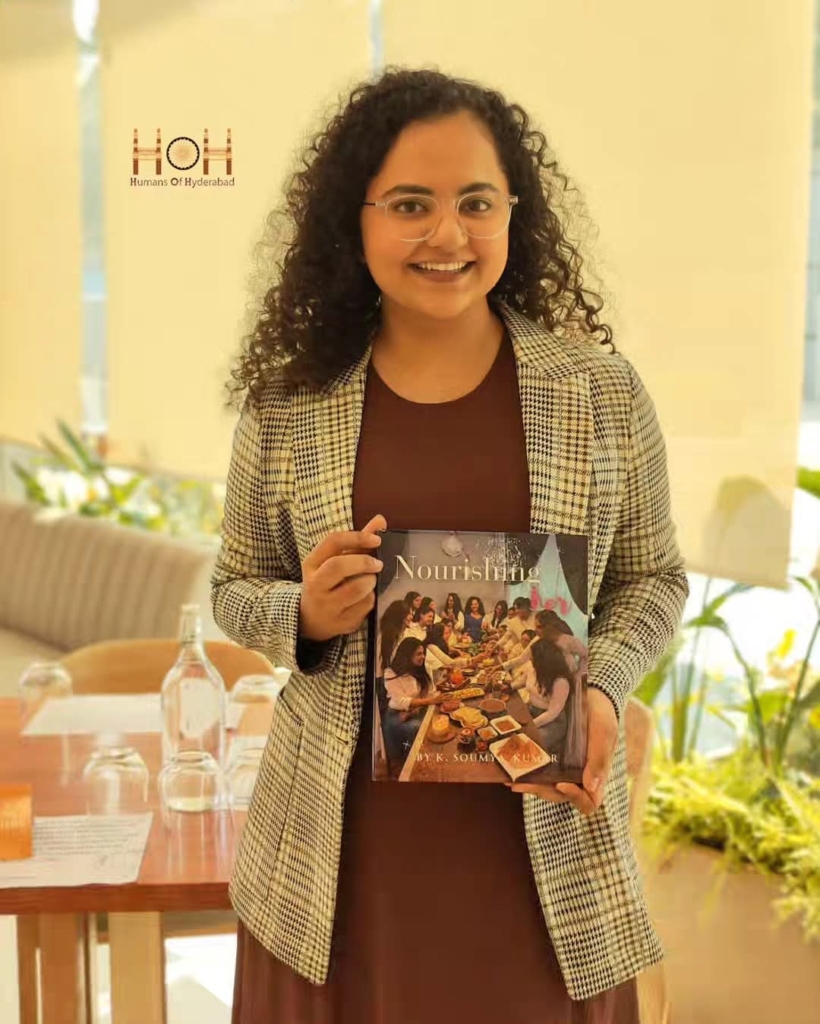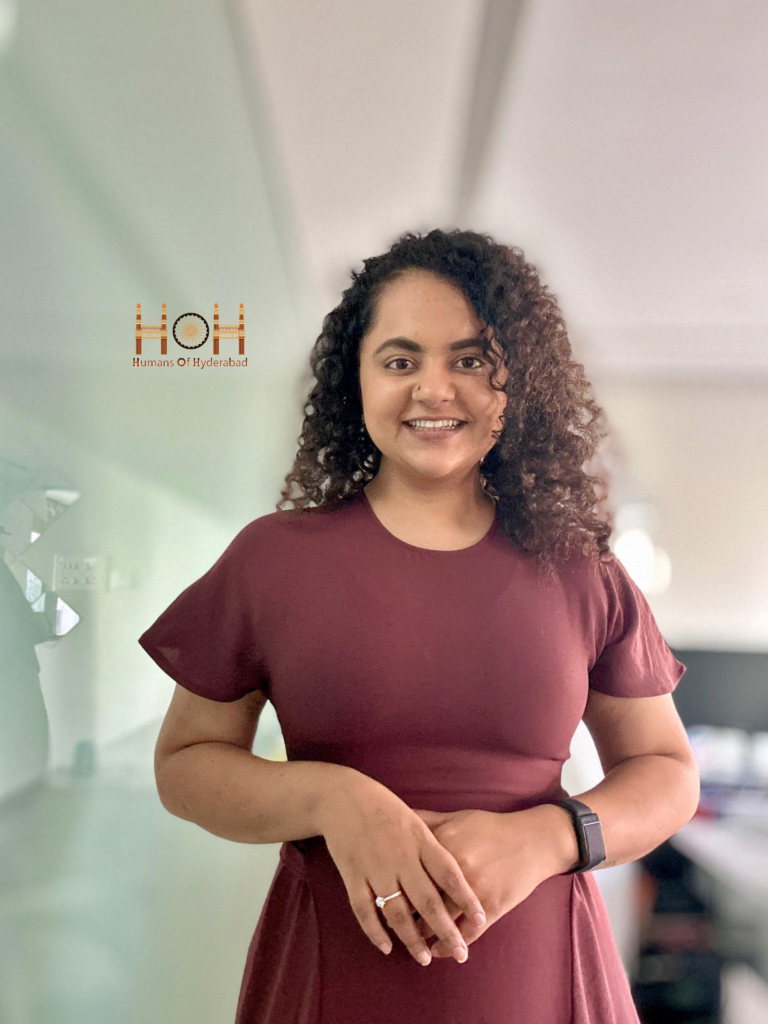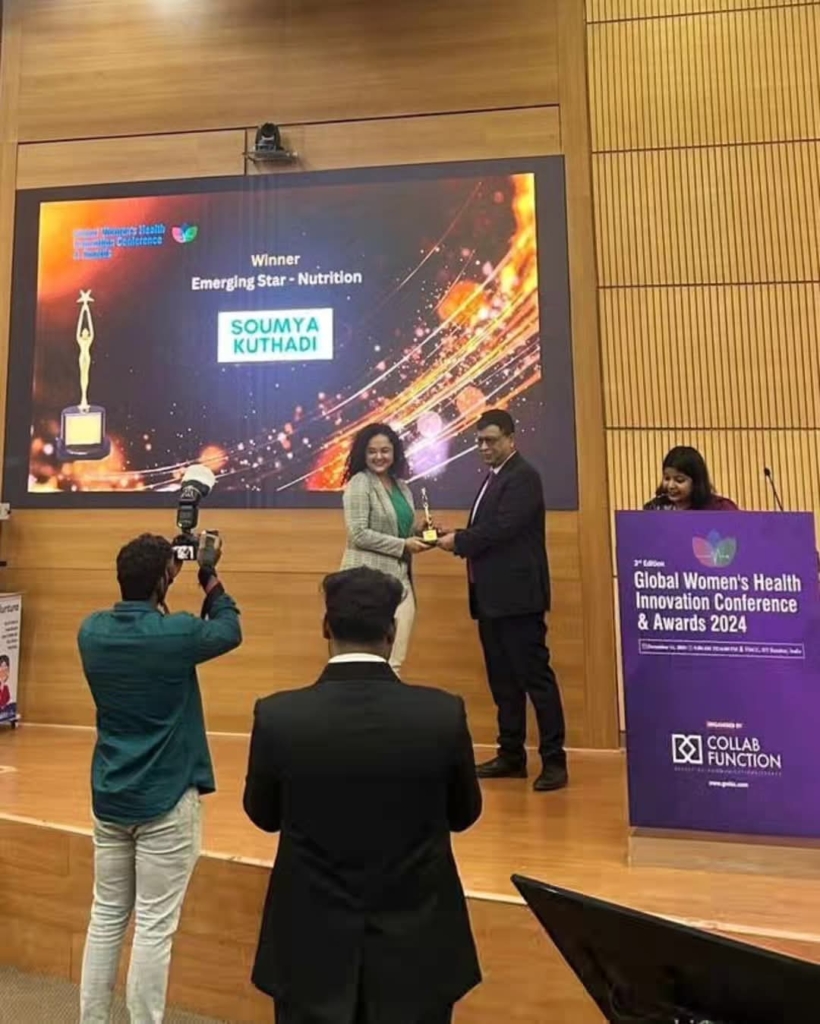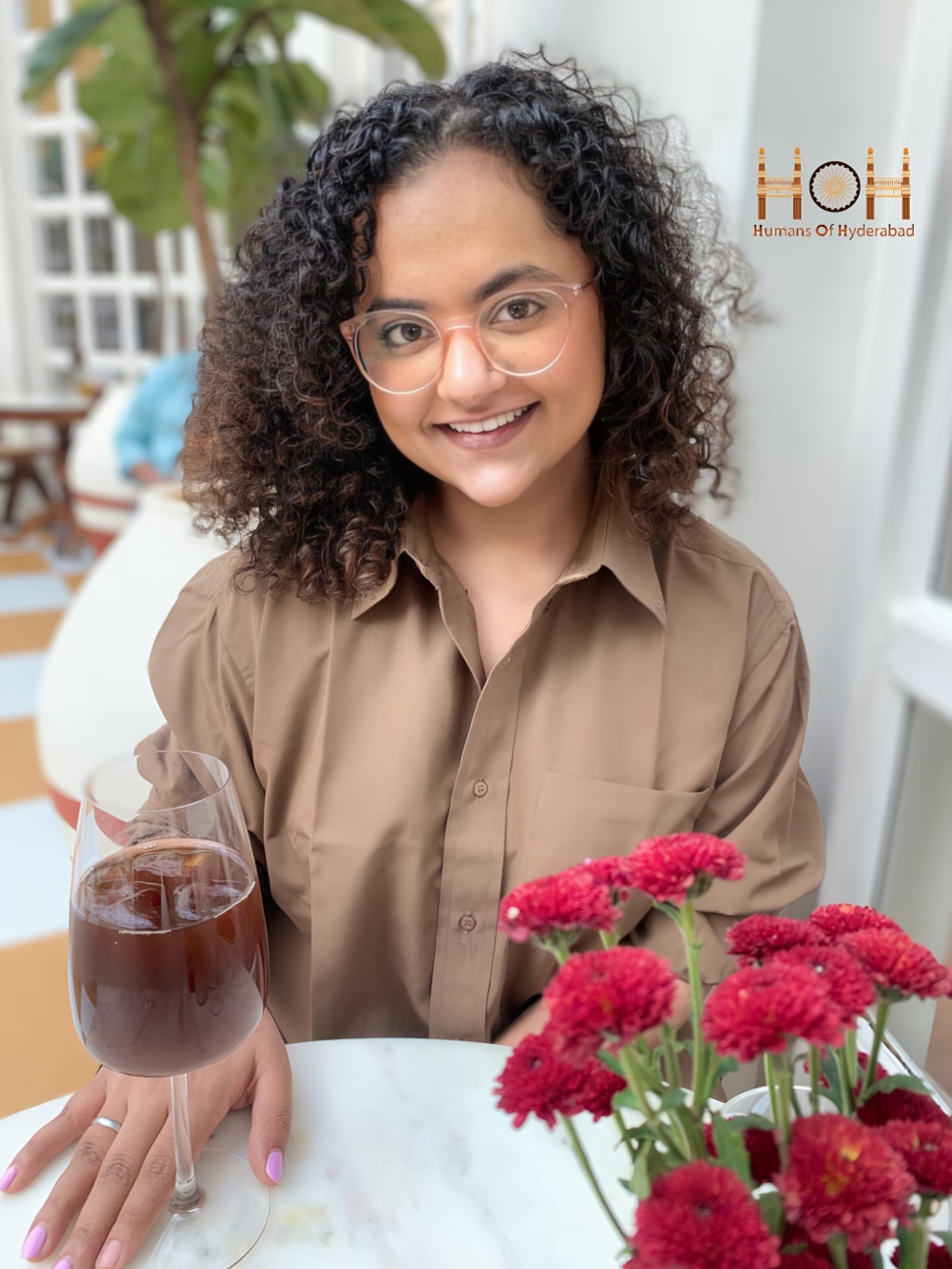“Growing up, I was always surrounded by conversations about health. My dad’s a doctor, so medicine felt like the natural path, one I assumed I’d follow. But by eighth or ninth grade, reality set in. The sheer intensity of medical school made me question if I was truly built for that life.
Then, in my home science class, I discovered nutrition. It felt like the perfect middle ground—I could still improve people’s health, but through food instead of medicine. That realisation stuck with me.
My grandparents’ struggles with Alzheimer’s and Parkinson’s deepened my curiosity. I kept wondering: Could nutrition have made a difference for them? That question became one of the driving forces behind my career choice.
After school in Hyderabad, I pursued my BSc in Nutrition at St. Francis College, only the second batch to graduate from the program. Even then, I knew I wanted to study abroad. A visit to Melbourne sealed the deal. The moment I stepped onto Monash University, I thought, this is where I belong.
And I was right. My time in Australia transformed me. It wasn’t just about memorising guidelines; it was about learning to think critically, evaluate research, and apply it to real-life scenarios. Clinical placements were eye-opening. I saw dietitians play crucial roles in ICU care, cancer treatment, and diabetes management. The impact was undeniable.
But landing a job as an international student? Brutal. I had to fight for every opportunity. I worked in private practice, trained under experienced dietitians, and even completed the IBS course, a training program by Monash University on the low FODMAP diet for IBS patients. Eventually, I earned my Accredited Practising Dietitian (APD) credential, one I’m still proud to hold, especially as one of the very few APDs in India.
Then, COVID changed everything.
I used to believe success meant rigidly following the path I had mapped out. COVID wiped away my carefully built Australian life overnight.
At first, I raged against the unfairness. I had worked so hard, only to end up back at square one. But in that forced pause, I found unexpected gifts.
That unplanned year at home became sacred time with my parents—time I had once taken for granted. I felt completely lost, unsure of what came next, but they never let me feel like I had failed. Instead of pressuring me to figure things out immediately, they offered unwavering support, reminding me that setbacks weren’t the end of the road, just redirections. Their faith in me, even when I doubted myself, is something I’ll always be grateful for.

The corporate detour, though frustrating, taught me business skills no university ever could. And in the wreckage of my old dreams, my true calling—fertility nutrition—took root.
I had come home to Hyderabad for a short break when Australia’s borders slammed shut. What started as a six-month wait turned into an undeniable reality: I had to move on.
Back in India, I faced an unexpected roadblock—clinical dietetics wasn’t valued the way it was in Australia. Hospitals told me I was “overqualified.” The work I was passionate about simply didn’t have a place for me here. So, I pivoted, taking corporate nutrition roles in Hyderabad and Bangalore.
But something didn’t feel right.

That six-month stint in Bangalore changed everything. Fertility treatments were booming in India, yet nutrition’s role in conception was barely discussed. IVF clinics focused on procedures, but no one talked about food as the foundation for success.
So, I carved my own path. Instead of taking another job, I reached out to fertility centres in Hyderabad as a consultant, offering my expertise on my own terms. It wasn’t just about flexibility—it was about filling a gap I knew mattered.
And it worked. Today, I partner with IVF clinics, helping couples optimise their health before, during, and after treatment.
The best part? The impact. When a woman who has struggled for years finally conceives because we addressed her insulin resistance or inflammation through diet, that’s the kind of success no salary can match.
This isn’t just a career. It’s proof that the most meaningful opportunities aren’t always handed to you. Sometimes, you have to create them by noticing what others overlook.
Indian nutrition is riddled with myths. Ghee is a superfood. Lemon-honey water detoxes you. Papaya causes miscarriages. I walk a fine line between respecting cultural beliefs and sticking to science. If a myth isn’t harmful, I let it be. But if it’s something like apple cider vinegar shots eroding gut health? That’s where I step in.

My biggest mantra has always been prevention over cure. A simple yearly blood test and a visit to a dietitian can catch issues before they spiral. And hydration—people don’t realise how many “hunger pangs” are just thirst in disguise.
My fiancé likes to say, “We don’t lose dreams. We exchange them for better ones.” He’s right. The cookbook we created together holds more meaning than any solo achievement. The struggling couples I help conceive—they are my purpose, not Plan B.
The secret? Hold your vision loosely enough to spot the unexpected blessings. My parents’ wisdom, my brother’s humour, my partner’s steadfast belief—they became my compass when my map failed.
Now I understand: Life’s richest chapters often begin with the words, but then something unexpected happened. What seem like detours are often shortcuts to the version of ourselves we were meant to become. The trick is staying awake to the magic in the mess.”
